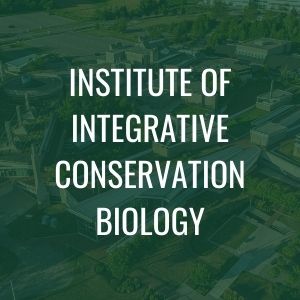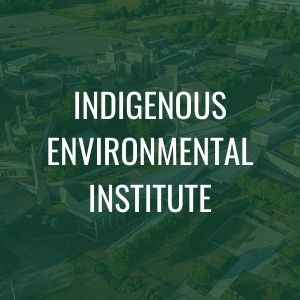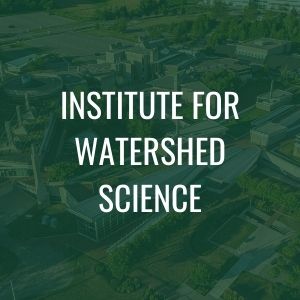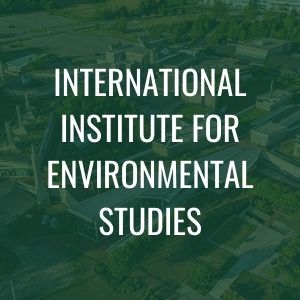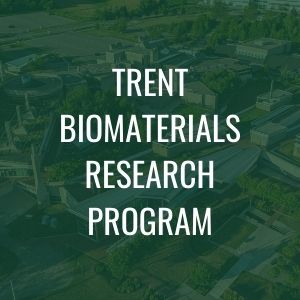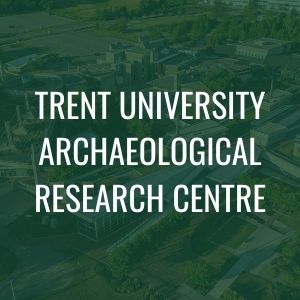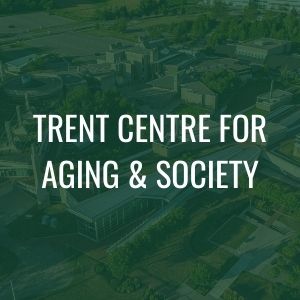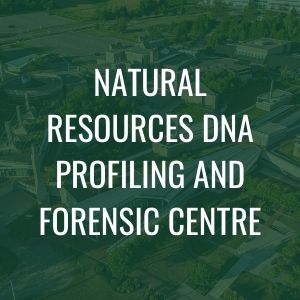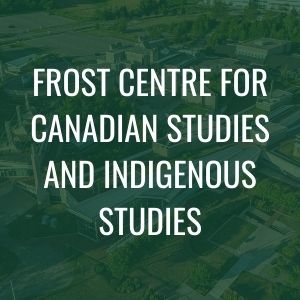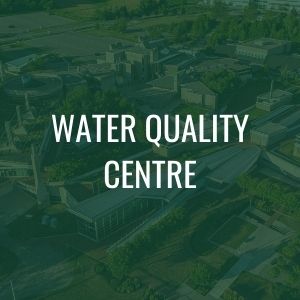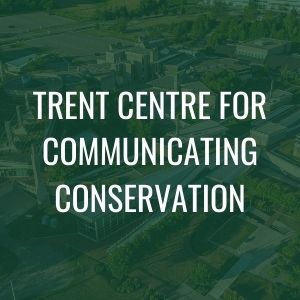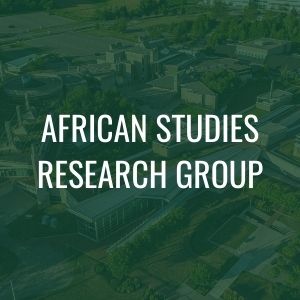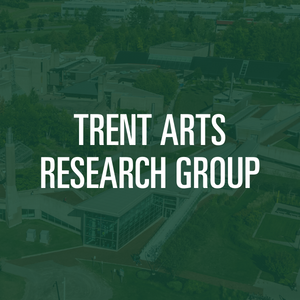The Research Centres and Institutes at Trent play a critical role in our pursuit of research excellence with national and international recognition, diversity of research across scholarly disciplines, an emphasis on interdisciplinary research, and involvement of students in research.
Research Institutes
Research Centres
Research Groups
With collaborative, interdisciplinary research at its core, Trent University is home to several informal research groups who work together on shared research objectives, and possibly, shared facilities and funds.
List of Research Institutes, Centres & Groups
Trent University Archaeological Research Centre
The Trent University Archaeological Research Centre (TUARC) seeks a deeper understanding of past cultures by studying artifacts, analysing field, laboratory, and archival data, and educating students and interested community members through courses, publications, and lectures. Established in 2001 by the University Senate, the TUARC manages academic and research facilities for professional archaeologists, researchers, graduate students, and volunteers. It also sponsors workshops and special courses on archaeology. Research facilities include specialized laboratories for Human osteology, Mesoamerican archaeology, Ontario archaeology, Paleo-DNA studies, South American archaeology, and Zooarchaeology. The TUARC manages a Pre-Columbian Aboriginal Art Resource Room, assists with the publication of the findings of associated scholars, and organizes public lectures on recent archaeological discoveries and advances.
Canadian Environmental Modeling Centre
The Canadian Environmental Modeling Centre (CEMC) was established as part of Environmental and Resource Studies at Trent University in 1995, with the appointment of Professor Don Mackay as holder of a jointly funded NSERC – Chemistry Industry Research Chair, which was renewed in 2000. The mission of the CEMC is to contribute to improved management of chemicals in our environment, locally, regionally, nationally and globally by acquiring and analyzing appropriate data on chemical properties and developing, validating and disseminating mass balance models, which describe the fate of these chemicals in the environment.
Trent Centre for Materials Research
Indigenous Environmental Institute
The Indigenous Environmental Institute aligns with the first four principles in Trent University’s Strategic Mandate Agreement: 1. Prepare students to make significant contributions to an increasingly complex world by providing them with a distinctive liberal arts, science or professionally focused education, which is enhanced by global perspectives, experiential learning and interdisciplinary approaches to personal and professional development; 2. Encourage and celebrate excellence and innovation in teaching, learning, research and student development; 3. Remain at the forefront of Indigenous education and scholarship; and 4.Develop strong partnerships and collaborations with external communities, professions, and other institutions, as well as within our colleges, departments, and programs. The Indigenous Environmental Research Centre was declared one of three focal areas for the 2018 Bata Research & Innovation Cluster for re-invigoration and large-scale renovation. The essential need for restoration, both cultural and ecological, is largely addressed in the Indigenous Environmental Institute’s mandate of Indigenous principles of relationship, respect, reciprocity, and responsibility. National commitments to Truth and Reconciliation stress the importance of these elements using education to cultivate mutual understanding between Indigenous and non-Indigenous peoples in Canada.
Institute of Integrative Conservation Biology
Conservation biology is, by nature, a broad discipline involving the study of the earth’s organisms and natural systems, usually in response to threats imposed by various stressors, primarily of anthropogenic origin. To date, the biological and applied management aspects of conservation biology have been well established within the field, and have focused largely on population or species preservation and ecosystem biodiversity. More recently, there have been efforts to more fully integrate the physical, social, and implementable components of conservation biology, to provide a more holistic perspective on the earth’s organisms and landscapes, and their respective threats. It seems reasonable that this broadened approach ultimately will improve the long-term success and societal relevance of conservation biology. Accordingly, the mission of the Institute of Integrative Conservation Biology is to promote and facilitate interdisciplinary research, collaboration, and graduate teaching and training in conservation biology and related fields, and to influence research and policy decisions at the regional, national and international level.
Institute for Watershed Science
The Institute for Watershed Science (IWS) is a unique interdisciplinary and inter-institutional alliance for integrated science, facility sharing, expert consultation, management services, training and technology transfer on watershed ecosystem management, health, protection and rehabilitation. The need for collaboration among researchers from various institutions has always been apparent, even more so now in the face of government reductions and restructuring. By directing scientific efforts at keys issues, networking with partners, standardizing methodologies and sharing information and facilities, efficiency can be maximized and mutual goals met. The IWS leads and encourages the development of integrated scientific analysis and understanding of ecological processes within watersheds. Our goal is to transfer this knowledge and provide a focus for further collaboration, and integration by partners, sponsors and clients.
Natural Resources DNA Profiling and Forensic Centre
The Natural Resources DNA Profiling and Forensic Centre (NRDPFC) represents a partnership between Trent University and Ontario’s Ministry of Natural Resources and Forestry (MNRF). Its current facilities in the DNA Building were opened in 2006 thanks to funding from the Canada Foundation for Innovation and the Ontario Innovation Trust. The facility includes the Wildlife DNA Forensic Laboratory that provides services for a number of national and international agencies. The Centre supports projects of graduate students, MNRF and other government research programs, research programs for industry, and research of faculty from Trent and other universities.
Trent Biomaterials Research Program
The Trent Biomaterials Research Program focuses on materials science, organic and organo-metallic modification of natural lipids, physics and chemistry of biomaterials, physics of crystallization and phase change, among others. Our research is aimed at the utilization of vegetable oils (soybean, canola, flax, corn, jatropha, palm, etc.) for the synthesis of functional polymers (for use as intelligent coatings, biomedical delivery systems and other specialized polymers), lubricants, greases and waxes, nano-matrices for the delivery of bioactive compounds and fertilizers, and crystallized networks of lipids for use as healthy food materials. Activities centre on organic modification, assembly of materials at various hierarchies, such as the molecular, supra-molecular and crystalline nanostructures, and structural organization at the microstructural length range, and the investigation of the relationships between the various hierarchies of structure and final macroscopic physico-chemical functionality of the materials. The materials studied are specifically designed so that their fate and functionality from cradle to cradle can be predicted and determined.
Trent Centre for Aging & Society
The Trent Centre for Aging and Society draws on Trent's reputation in interdisciplinary excellence to promote research and awareness about aging and old age. The Centre's mandate is to mobilize a critically informed academic and public dialogue that advocates for the diversity of the aging experience, challenges ageist policies and practices, and develops expertise for understanding and planning for Canada's aging futures. The Centre brings together Trent faculty, visiting scholars, students and community members with an interest in aging, and it supports innovative research, education and community engagement that is responsive to the challenges and opportunities facing older people and aging communities in Peterborough, across Canada and internationally.
Water Quality Centre
The Water Quality Centre is located on the Trent University campus in Peterborough, Ontario. The Centre houses many state-of-the-art analytical instruments for determining trace quantities of substances found in natural aquatic environments including rivers, streams and drinking water. The equipment is used primarily in the detection of trace pollutants, but finds application in a wide range of research areas, including biochemistry and synthetic organic chemistry, gas-phase ion chemistry, ecology, limnology, and geochemistry. The facility provides research support to university scientists from across Canada. Consultation and analytical support services are available to any interested user. The mission of the Centre is to develop analytical techniques in response to the needs of individuals, governments and industry in all areas of water quality assurance.
International Institute for Environmental Studies
Website: www.ii-es.com
The International Institute for Environmental Studies (IIES) was founded through a partnership between Trent University and Nanjing University in China, and has since grown to a number of collaborating universities from around the globe that have leading programs in environmental science, engineering and policy. IIES was founded through a partnership between Trent University and Nanjing University in China. While every institution recognizes the importance of internationalization and providing opportunities for students and faculty to be involved in research of an international scale, most recognize that there is room for improvement in how this experience is delivered. The IIES is a response to this need, with a vision to become a global leader in the development of research and policy for the management of environmental issues with international dimensions. To meet this vision, the Institute brings together world-class research scientists and policy analysts from institutions from around the globe to work collaboratively, sharing expertise, facilities and research programs. As a global leader in environmental research, the IIES fosters international exchanges of research scientists, field experts, faculty members, post‐doctoral fellows and students. It also facilitates the exchange of information, ideas, research needs and results among members, governmental members and industry partners. Through a variety of annual public events, the Institute seeks to transfer the outcomes of the research of its members to its governmental and industrial partners and to the public at large.
Trent Centre for Communicating Conservation
The Trent Centre for Communicating Conservation’s (TC3) mission is to improve our ability to translate conservation science to the public and policy-makers. At the heart of the Centre’s activities will be the craft of compelling storytelling. Policy and documents, facts and figures, charts and data; these will always be part of the conversation. In conservation science, peer-reviewed knowledge remains the foundation of understanding, but as the starting point for broad understanding and conservation action, mere data fails to connect with non-specialists. Storytelling does. Narratives, images, and conversations have emotional and memorable qualities that link science to non-scientists. Storytelling frames people’s perspectives about the world, and when we re-frame the way we communicate environmental issues, we change the way the public views the environment. Storytelling moves people from inertia to engagement.
African Studies Research Group
The African Studies Research Group was re-established in 2019 to provide students and scholars alike with an organization dedicated to highlighting and fostering research around the African continent. Trent has had a long and close relationship with excellence in research around Africa, ranging from economic histories to archaeological digs and music and literature alike. The Group offers interested researchers a home to share ideas, discuss their work, and develop new and exciting approaches to studying such a rich and diverse continent. It is also a place to share our passion for the continent and how we engage with it. The Group comprises scholars from a number of departments and faculties at Trent, reflecting our commitment to both the continent and to interdisciplinary approaches. Africa is the birthplace of the human species. It has also been the focal point for crucial developments in human history, and is a fundamental player in major global developments and resource markets. Much of the world’s population has been affected by the legacies of both the trans-Saharan and trans-Atlantic slave trades along with the Indian Ocean trade, and central to any study of these trades is the fact that from them arose the first true global market economy. Enslaved Africans brought the music and stories of the continent to the Americas, Middle East, and as far as Southeast Asia in some cases. As a result, African culture, African music and African resistance has been a major theme in most global cultures’ development. Today, the many African nations are key producers of raw materials and rare minerals necessary to miniaturize electronics, and a new diaspora of students, migrants, and entrepreneurs who bring African culture and perspectives to the world. The Group reflects this wide scope and the variety of ways to study and share research.
EditionsTrent
EditionsTrent is an established group of scholars working with external collaborators and partners drawn together as part of the Editing Modernism in Canada (EMiC) initiative. The Department of English Literature and its associated Masters program (Public Texts) are home to the very active EditionsTrent Research Group, producing scholarly editions of major Canadian writers. Over the years, Trent University’s English Department has hosted three major print and/or digital “collected works” projects focused on the works of A.M. Klein, E.J. Pratt, and P.K. Page, as well as the digital edition of the expansive diaries of Robertson Davies.
Molecules, Cells, and Systems Research Centre
Molecules, Cells, and Systems Website
The Molecules, Cells and Systems Research Centre brings together researchers from the departments of Biology, Psychology, Chemistry, and Forensics Science, who collaborate to answer key questions related to our understanding of the biological determinants of life. All organisms, whether unicellular (e.g., bacteria) or multicellular (e.g., humans), require fundamental building blocks (i.e. molecules) that allow them to survive and flourish. These building blocks facilitate the formation of a cell, which can then associate with other cells to form a multicellular organism. Through evolution, multicellular organisms have become more specialized, facilitating the formation of complex multicellular structures found in our most evolved species (e.g., tissues and organs in humans). The survival of all species on this planet requires a thorough understanding of the mechanisms underlying each stage of this biological hierarchy.
Trent Arts Research Group
Trent Arts Research Group Website
Trent Arts Research Group (TARG) is an interdisciplinary research group of educators, practitioners and theorists engaged in arts-based research and practice. The aim of the research group is to explore the ways in which the arts and arts-based research can foster relationships and collaboration among educators and community members for eco-social justice and reconciliation. As a social practice, arts-based research integrates seemingly disparate disciplines through primarily qualitative research projects that serve individuals and communities and their development. The purpose of the research group is to support research dissemination and project development by creating a collective space for people in the arts at Trent to work together, to move from fragmented individuals to a community of researchers. By incorporating a collective approach, we engage in co-collaboration that includes faculty and graduate students to focus on research, knowledge mobilization, and community connections through arts and action.


